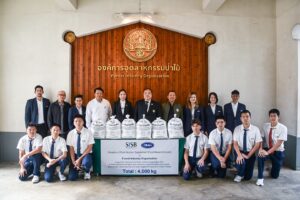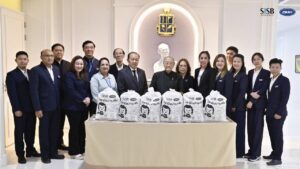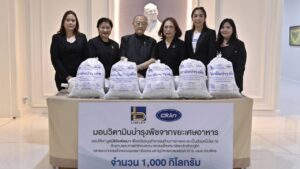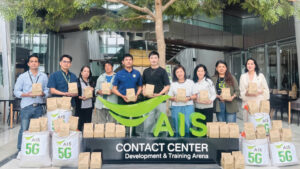
Oklin encourages waste separation before disposal — “Don’t Mix It All Together.
Oklin encourages waste separation before disposal — “Don’t Mix It All Together.
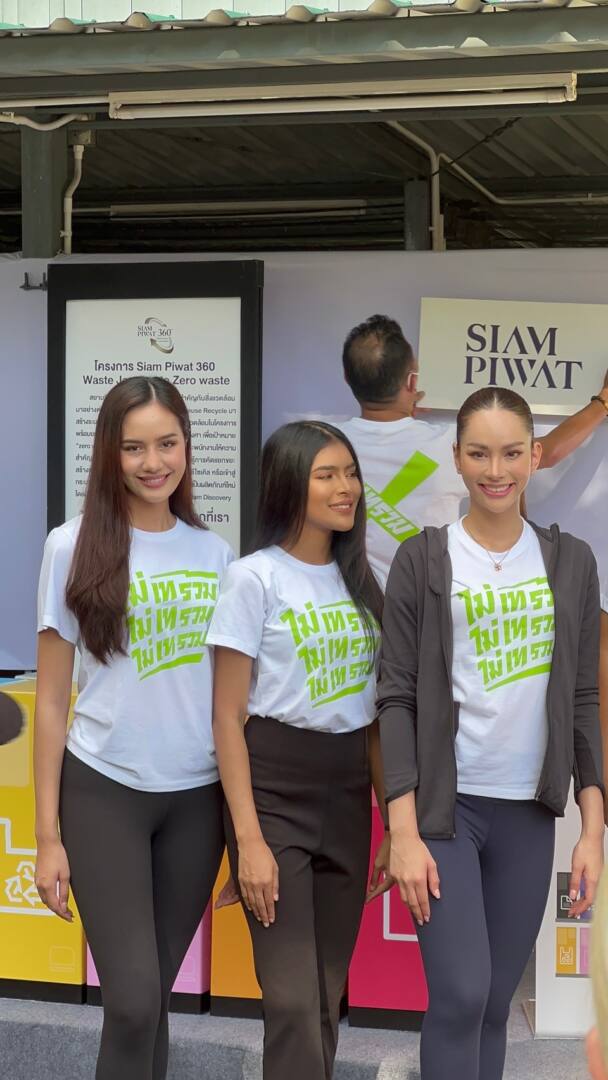
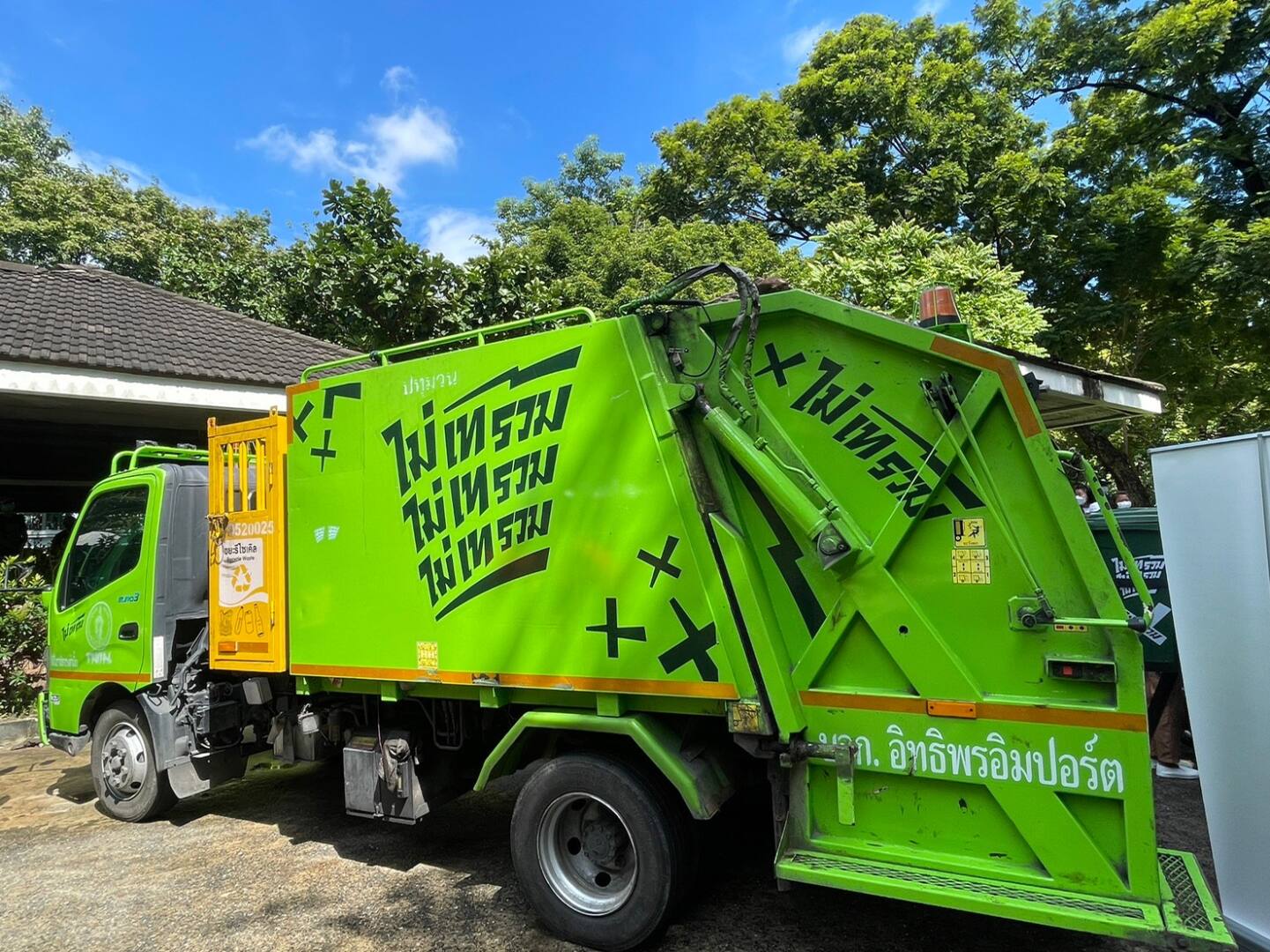
#Oklin Urges Waste Separation Before Disposal — “Don’t Mix” Food Waste with Other Trash
Helping Reduce Waste from the Source, Launches New Waste Collection Trucks with Dedicated Food Waste Compartments at Lumphini Park, Pathum Wan District
(September 4, 2022) — Mr. Chadchart Sittipunt, Governor of Bangkok, along with the Bangkok Metropolitan Administration (BMA) executives, partner organizations, and district offices, held a press conference to launch the “Don’t Mix” campaign at the food court area in Lumphini Park, Pathum Wan District. Ms. Anna Sueangam-iam, Miss Thailand Universe 2022, also joined the event.
Governor Chadchart stated, “Waste separation has been discussed for a long time. Once separated, waste immediately gains value. Wet, odorous waste separated from dry general waste can be more easily recycled and repurposed. However, in the past, many citizens separated waste only to see it all mixed together during collection, which discouraged them. Now is the time to implement a complete process — from start to finish: starting with citizens separating waste at the source, the BMA collecting it separately, and finally, proper end-point waste management.”
He encouraged Bangkok residents to “Turn waste into valuable resources.”
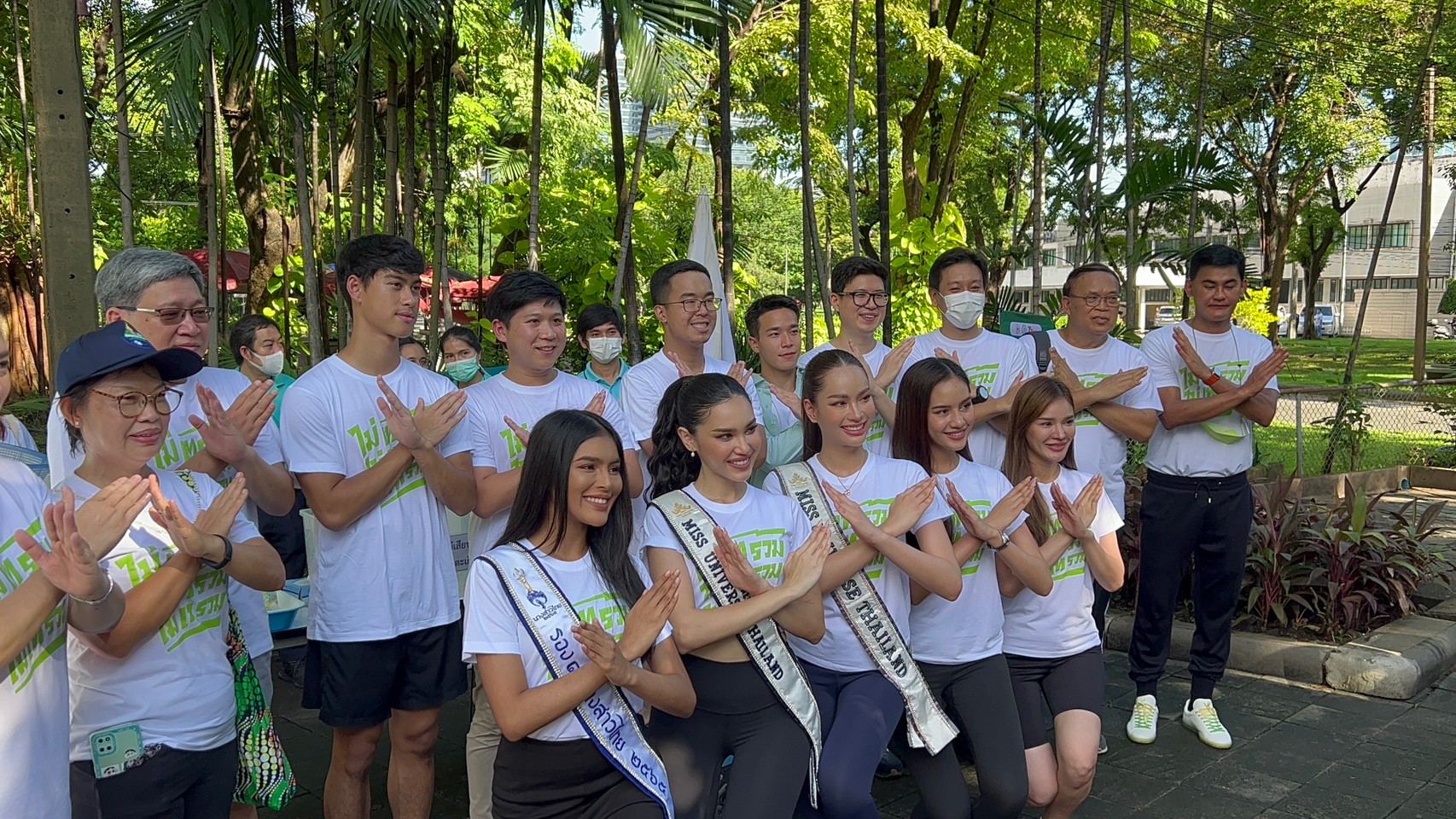
Bangkok Governor Launches “Don’t Mix” Campaign — Transforming Waste into Assets through Pilot Waste Separation Project in Three Districts
Bangkok has been spending tens of billions of baht annually on waste management, along with over four billion baht each year on related studies. “We’ve invested enormous resources into waste issues. Now, we must think about how to turn waste into assets,” said Mr. Chadchart Sittipunt, Governor of Bangkok. “Today marks a historic day — but we will proceed step-by-step, starting with a pilot model.”
The Bangkok Metropolitan Administration (BMA) has selected three districts — Pathum Wan, Phaya Thai, and Nong Khaem — representing inner-city, near-city, and suburban areas, each with distinct community profiles, fresh markets, offices, and condominiums. The pilot aims to determine whether the waste separation model can be effective.
Challenges include the current design of garbage trucks, which can be inconvenient for waste separation. “If we successfully separate wet waste at the source, overall waste separation will be easier and faster,” the Governor explained. The project will develop a prototype for perfection, and once the model proves effective, it will be expanded citywide. “This is a matter we must take seriously — waste impacts greenhouse gas emissions, the environment, collection costs, and the city’s sustainability. If separation reduces costs, we can redirect that budget to support children or the elderly. Around the world, waste is already being turned into assets. There’s no better time than now — we must begin in earnest, together with the private sector, the government, and the people.”
The Governor also addressed related waste management ideas, such as foldable mesh enclosures with lids (as seen in Japan) to store garbage bags securely and prevent scattering by stray dogs or rodents, as well as portable bins for street sweepers to improve efficiency. He emphasized the need to equip workers with the right tools to make their jobs easier, and committed to monitoring progress weekly while addressing issues on the ground.
Incentives & Enforcement
Mr. Chadchart outlined future plans to create incentives for proper waste separation. Options include reducing collection fees for households that separate waste, providing monthly compost for participants, or awarding recognition stickers for homes contributing to city improvement. Conversely, under the Polluter Pays Principle (PPP), households that fail to separate waste may face higher collection fees in the future.
“Don’t Mix” — A Dedicated Food Waste Separation Campaign
The “Don’t Mix” project is a city initiative to separate food waste from general waste, aiming to establish a district-level integrated waste separation model. This will reduce both waste generation at the source and disposal problems at the end-point.
Today, the BMA unveiled new garbage trucks with designated compartments for food waste:
- Rear-compactor trucks with an additional section for food waste
- Side-loading trucks for collecting food waste separately
This separation helps reduce leachate problems, foul odors during collection and disposal, and allows for more efficient resource recovery. These specialized trucks will operate in the pilot districts: Pathum Wan, Phaya Thai, and Nong Khaem.
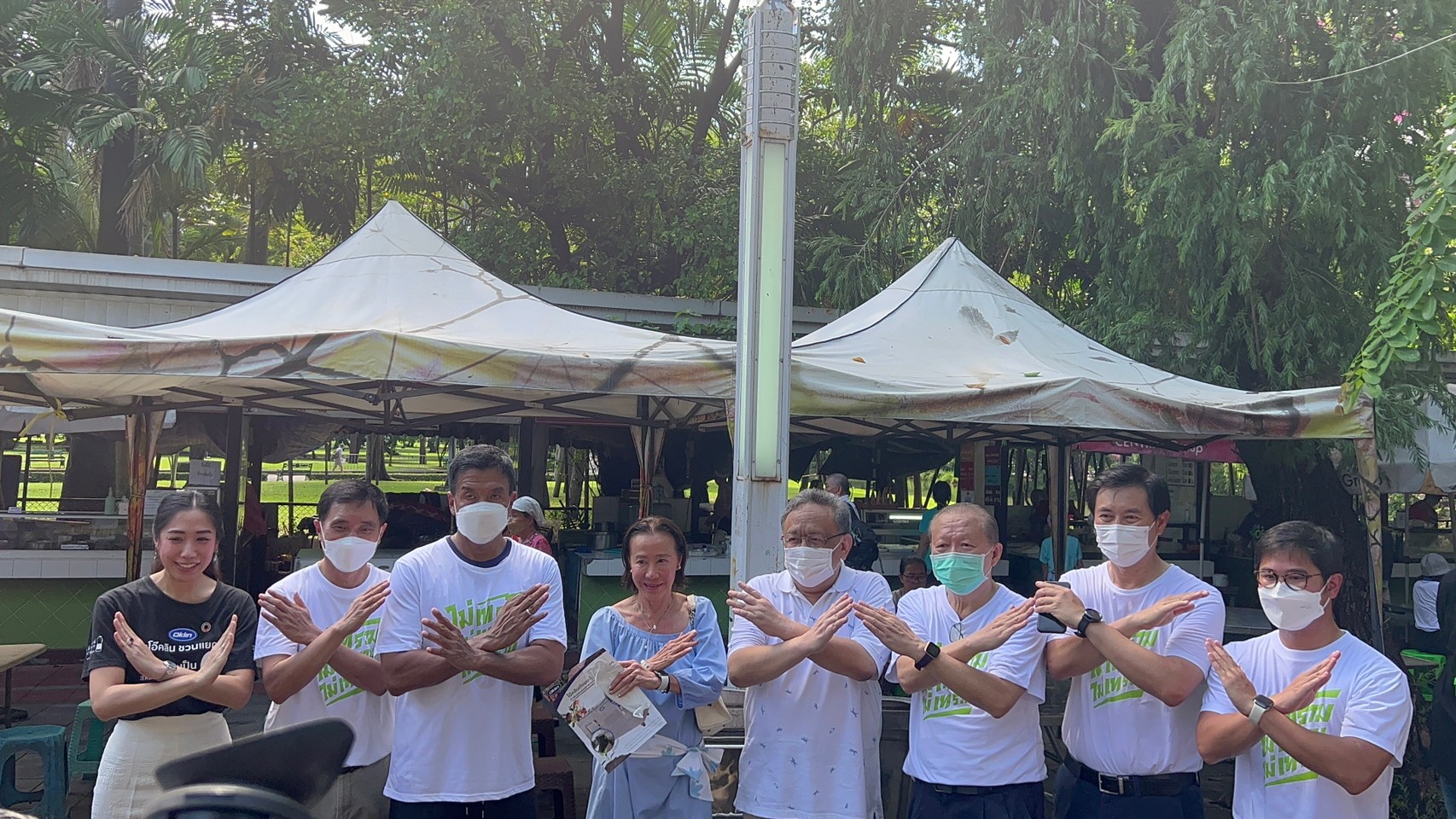
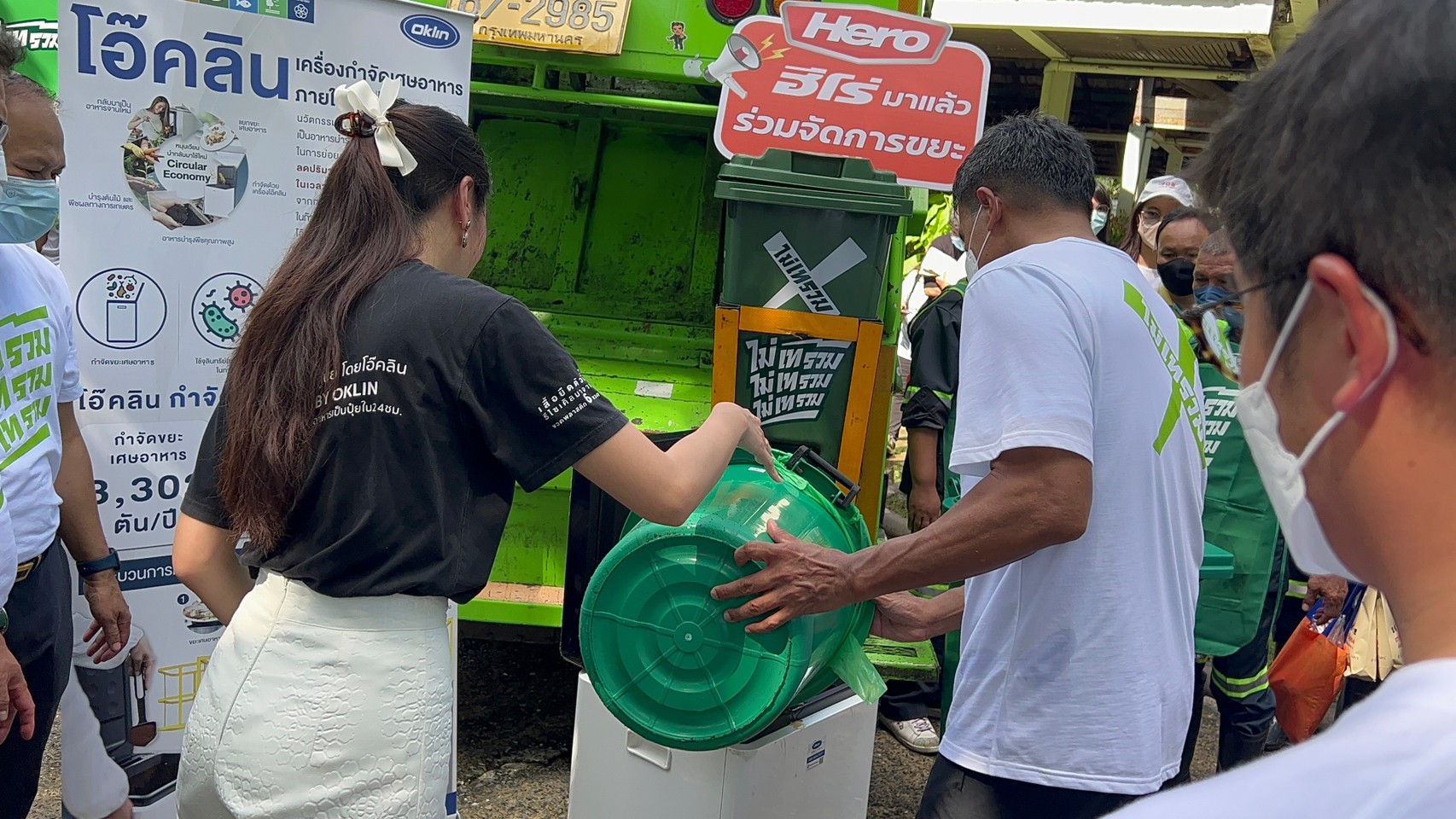
“Don’t Mix” Project — 3-Phase Implementation Plan for Food Waste Separation in Bangkok
The “Don’t Mix” project is divided into three phases to allow for monitoring, evaluation, and continuous improvement:
-
Phase 1 (September–October 2022) – Pilot stage: Implemented in one district, covering one route.
-
Phase 2 (November–December 2022) – Expanded to all routes at the subdistrict (khwang) level.
-
Phase 3 (January–March 2023) – Full-scale coverage across the three pilot districts.
Waste Collection Method
The project uses two types of vehicles for separate food waste collection:
-
Side-loading garbage trucks (1.5-ton capacity) – one per district – collecting food waste at different times from general waste collection.
-
Modified rear-compactor garbage trucks (5-ton capacity) – fitted with an additional food waste container at the rear, plus two reserve containers mounted near the cab – enabling food waste collection alongside general waste.
Collected food waste will be sent by district offices to the On Nut Mechanical and Biological Waste Treatment (MBT) facility, where it will be processed into biogas for electricity generation.
In 2023, the program plans to start with three pilot routes and expand to subdistrict-level implementation in the remaining 47 districts.
Selection of Pilot Districts
The three pilot districts were chosen based on six criteria:
-
Land area
-
Population size
-
Waste volume
-
Number of communities
-
Community type
-
Distance to the waste disposal facility
-
Pathum Wan District – Represents high-density urban areas with small land area but waste volumes above average.
-
Phaya Thai District – Represents areas below average in all criteria.
-
Nong Khaem District – Represents areas exceeding the average in all criteria.
Monitoring & Readiness
Each phase will be assessed for suitability, benefits, budget impact, resource sufficiency, readiness of equipment and dedicated food waste trucks, and processing capacity at all three waste treatment centers.
Before expanding to the 47 remaining districts, the BMA will:
-
Ensure adequate equipment and processing systems for food waste
-
Conduct continuous public awareness campaigns
-
Promote participation through social media and multiple communication channels to build motivation and engagement
Source: prbangkok.com
OKLIN – Eco-Friendly Food Waste Composter
Turns food waste into dry fertilizer within 24 hours. It handles liquids without the need for separation, requires only a one-time microbial starter with no refills for its entire lifespan, and uses natural microbial decomposition that is safe for the environment. The process produces ready-to-use organic fertilizer and requires no filter changes, reducing hazardous waste. An Australian innovation, it is easy to use for both households and industrial applications.
Household model: 79,000 THB
Industrial model: Free site survey and waste volume assessment
Contact Line: @oklinthailand

